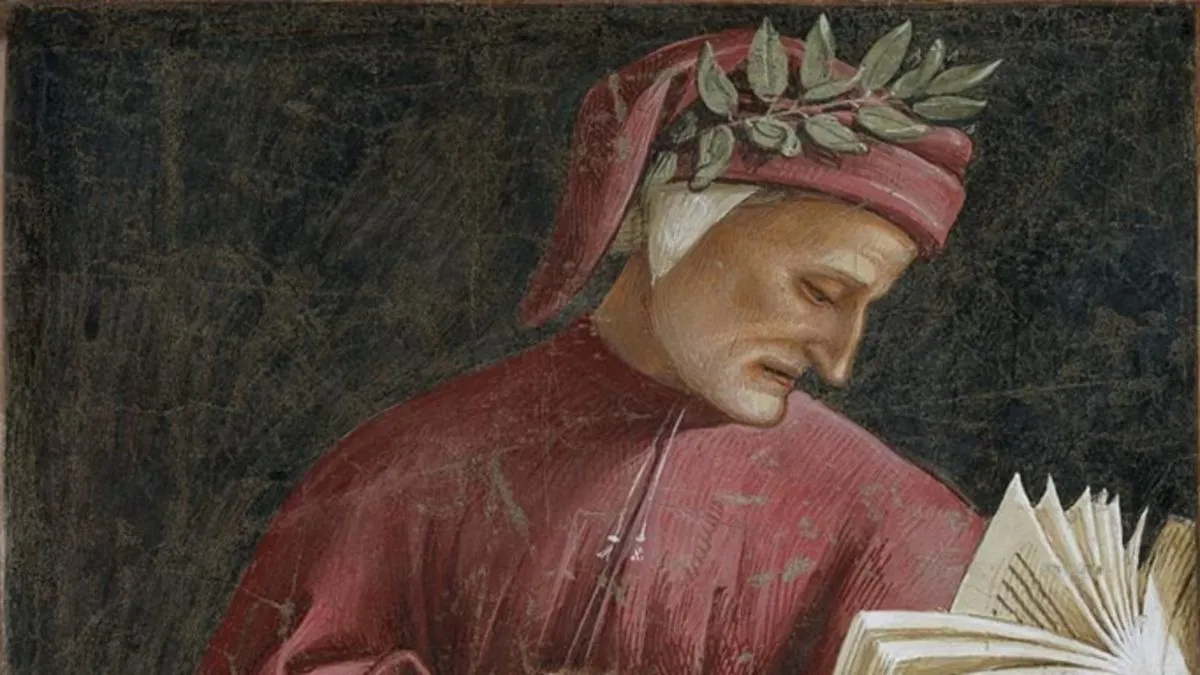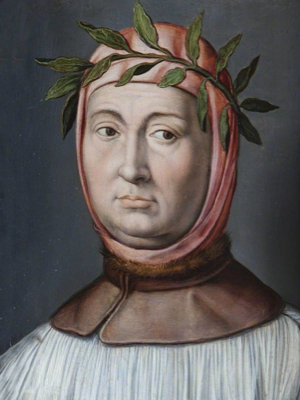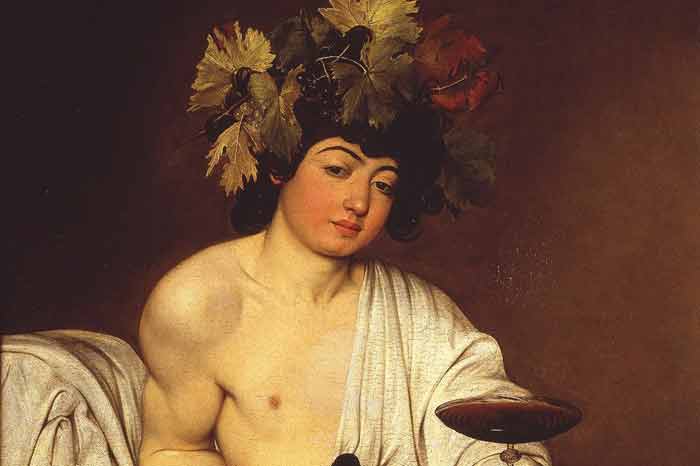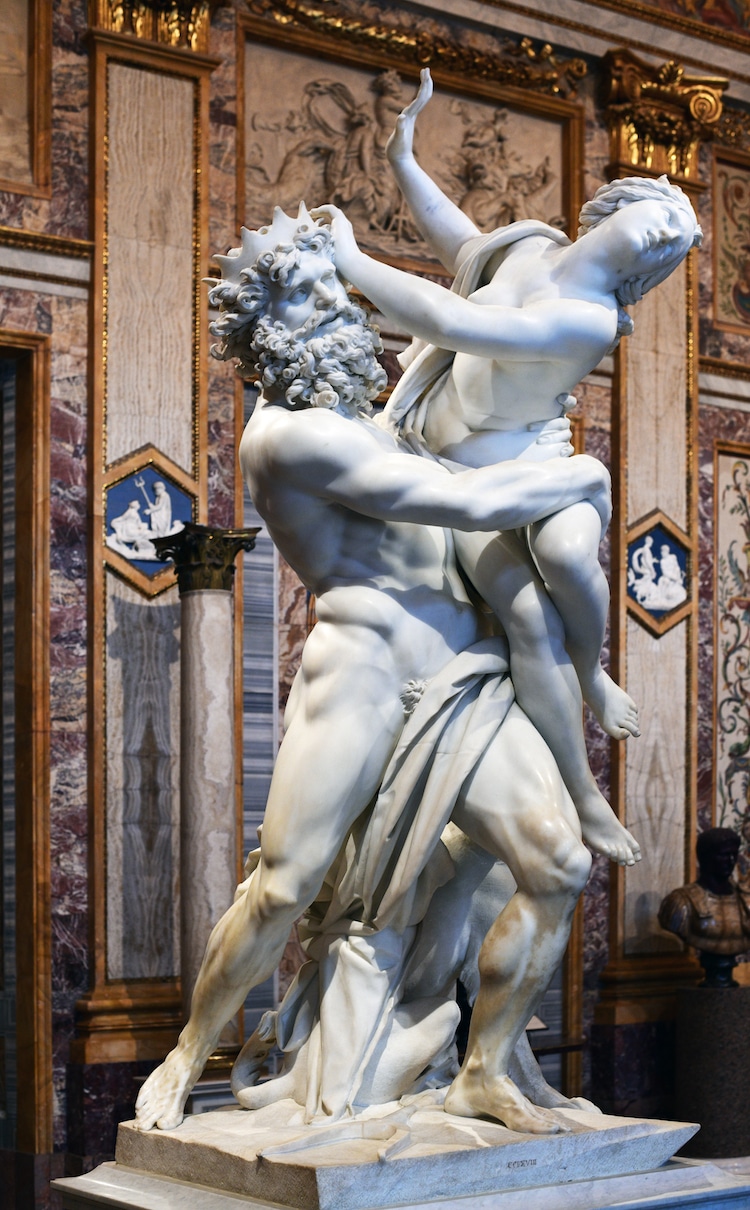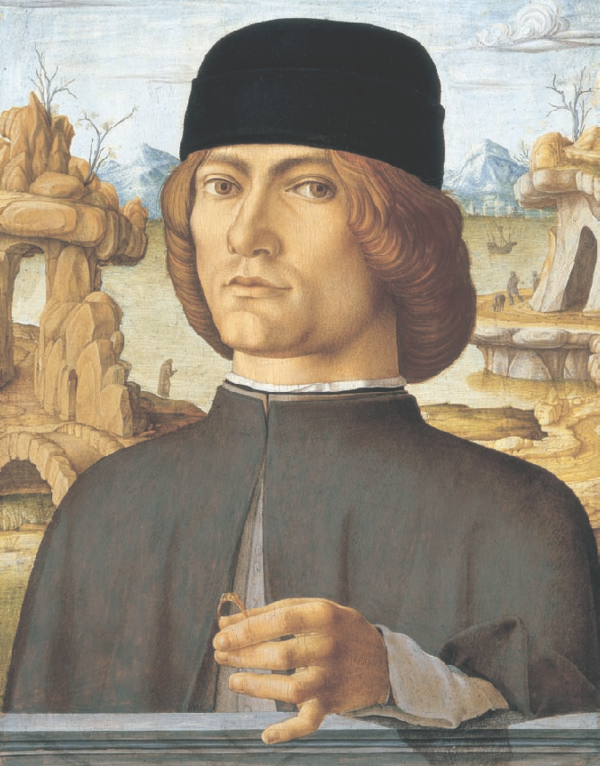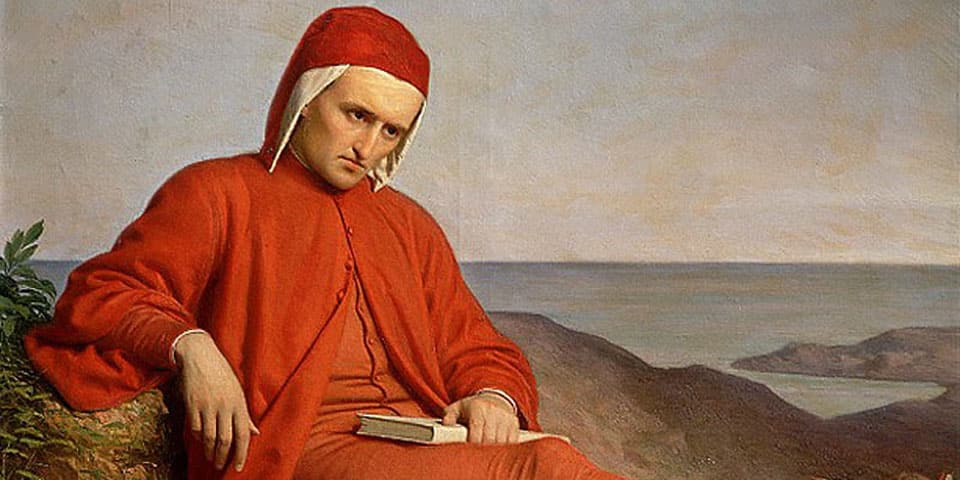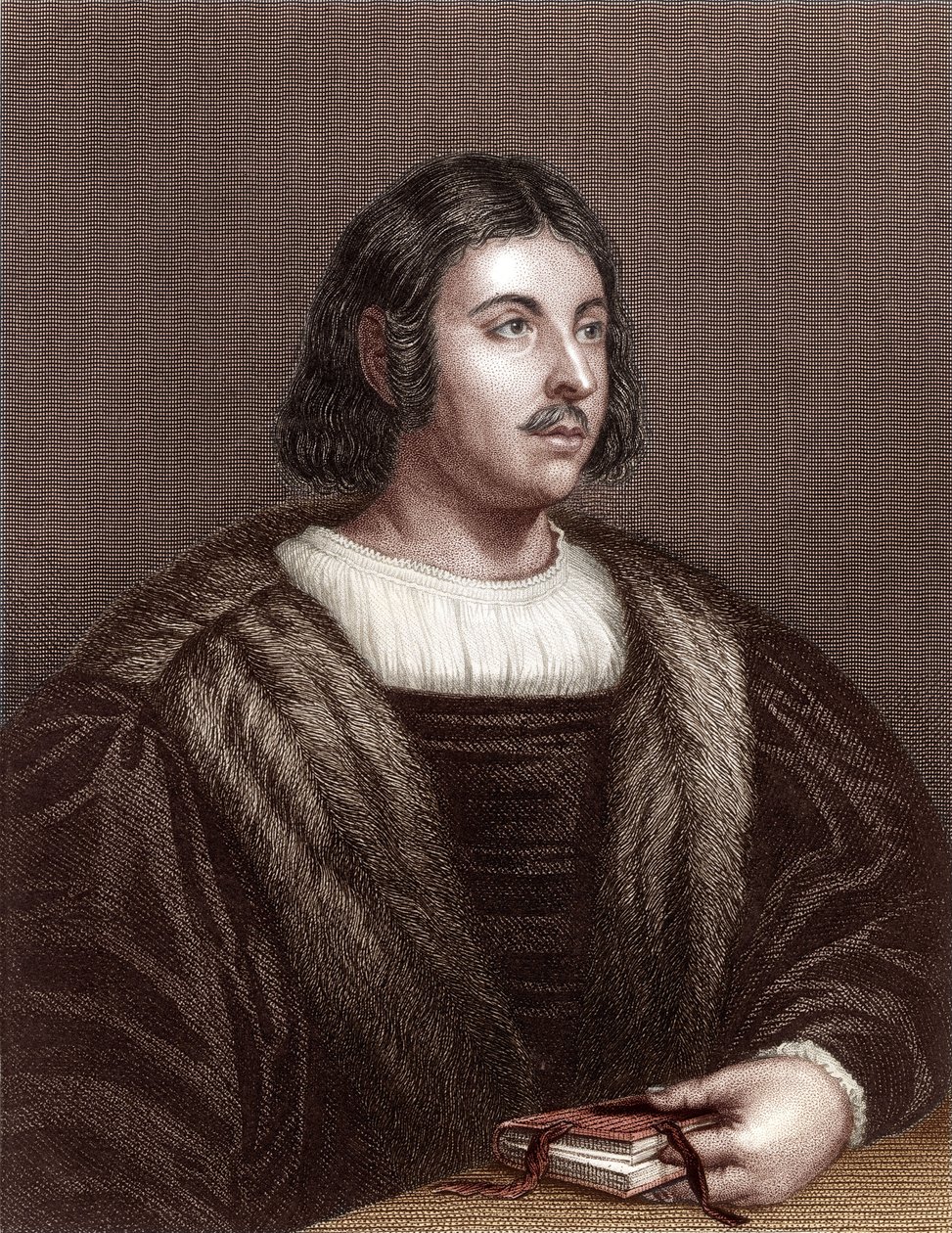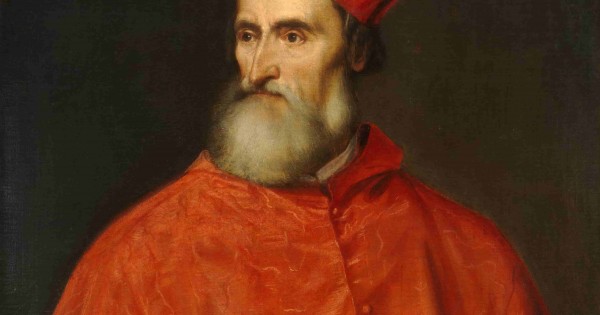Francesco Petrarca
Francesco Petrarca (1304 – 1374) was a scholar and poet of early Renaissance Italy, and one of the earliest humanists.
Petrarch's rediscovery of Cicero's letters is often credited with initiating the 14th-century Italian Renaissance and the founding of it’s humanism. In the 16th century, Pietro Bembo created the model for the modern Italian language based on Petrarch's works, as well as those of Giovanni Boccaccio, and, to a lesser extent, Dante Alighieri.
Petrarch's sonnets were admired and imitated throughout Europe during the Renaissance and became a model for lyrical poetry.
Petrarch is best known for his Italian poetry, notably the Rerum vulgarium fragmenta ("Fragments of Vernacular Matters"), a collection of 366 lyric poems in various genres also known as 'canzoniere' ('songbook'), and I trionfi ("The Triumphs"), a six-part narrative poem of Dantean inspiration. However, Petrarch was an enthusiastic Latin scholar and did most of his writing in this language. His Latin writings include scholarly works, introspective essays, letters, and more poetry. Among them are Secretum ("My Secret Book"), an intensely personal, imaginary dialogue with a figure inspired by Augustine of Hippo; De Viris Illustribus ("On Famous Men").
Petrarch revived the work and letters of the ancient Roman Senator Marcus Tullius Cicero
Petrarch also published many volumes of his letters, including a few written to his long-dead friends from history such as Cicero and Virgil. Cicero, Virgil, and Seneca were his literary models. Most of his Latin writings are difficult to find today, but several of his works are available in English translations. It is difficult to assign any precise dates to his writings because he tended to revise them throughout his life.
Philosophy
In his work Secretum meum he points out that secular achievements did not necessarily preclude an authentic relationship with God. Petrarch argued instead that God had given humans their vast intellectual and creative potential to be used to their fullest. He inspired humanist philosophy which led to the intellectual flowering of the Renaissance. He believed in the immense moral and practical value of the study of ancient history and literature—that is, the study of human thought and action. Petrarch was a devout Catholic and did not see a conflict between realizing humanity's potential and having religious faith. Many philosophers and scholars have regarded Petrarch as a Proto-Protestant who challenged the Pope's dogma.
A highly introspective man, he shaped the nascent humanist movement a great deal because many of the internal conflicts and musings expressed in his writings were seized upon by Renaissance humanist philosophers and argued continually for the next 200 years.
